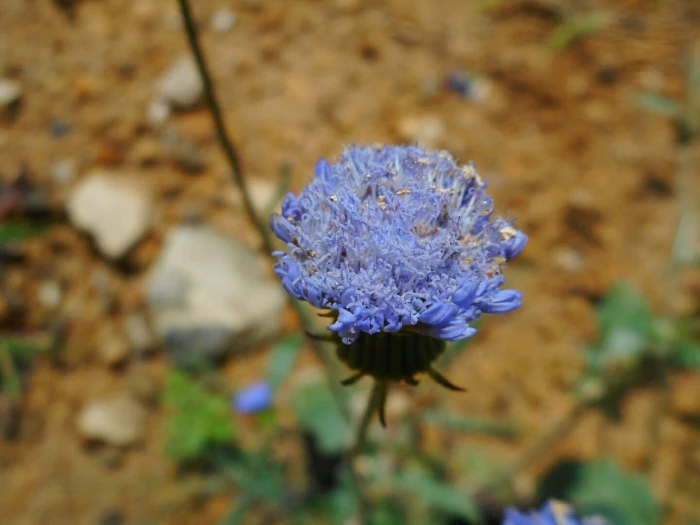Yoruba Bologi
(Crassocephalum rubens)
Yoruba Bologi (Crassocephalum rubens)
/
/

Eugene Popov
CC BY 4.0
Image By:
Eugene Popov
Recorded By:
Copyright:
CC BY 4.0
Copyright Notice:
Photo by: Eugene Popov | License Type: CC BY 4.0 | License URL: http://creativecommons.org/licenses/by/4.0/ | Rights Holder: Eugene Popov | Publisher: iNaturalist | Date Created: 2021-04-26T13:25:52-07:00 |

























Estimated Native Range
Climate Requirements
| • Precipitation | 19" - 180" |
| • High Temp. | 69°F - 106°F |
| • Low Temp. | 35°F - 73°F |
Summary
Crassocephalum rubens, commonly known as Yoruba bologi, is an erect annual herb that can reach up to 31 inches in height. It is indigenous to tropical Africa, where it thrives in a variety of habitats including open woodlands, forest edges, and disturbed areas. In its native environment, it often colonizes open spaces quickly, displaying its adaptability to different soil types and conditions.
Crassocephalum rubens is valued for its edible leaves, which are a rich source of vitamins and minerals. It is commonly cultivated in home gardens and farms in Southwestern Nigeria, Yemen, South Africa, and islands of the Indian Ocean for its nutritional benefits. The plant has a fast growth rate and produces small, red or orange composite flowers that add a splash of color to the garden. It is also used medicinally in some cultures. In cultivation, it prefers full sun to partial shade and requires regular watering, especially in dry conditions. It is not particular about soil type but benefits from good drainage. While it is not widely known for ornamental use, its ease of growth and maintenance makes it a practical choice for vegetable gardens and as a leafy green in tropical climates. However, gardeners should be aware of its potential to become invasive outside its native range and monitor its growth accordingly.CC BY-SA 4.0
Crassocephalum rubens is valued for its edible leaves, which are a rich source of vitamins and minerals. It is commonly cultivated in home gardens and farms in Southwestern Nigeria, Yemen, South Africa, and islands of the Indian Ocean for its nutritional benefits. The plant has a fast growth rate and produces small, red or orange composite flowers that add a splash of color to the garden. It is also used medicinally in some cultures. In cultivation, it prefers full sun to partial shade and requires regular watering, especially in dry conditions. It is not particular about soil type but benefits from good drainage. While it is not widely known for ornamental use, its ease of growth and maintenance makes it a practical choice for vegetable gardens and as a leafy green in tropical climates. However, gardeners should be aware of its potential to become invasive outside its native range and monitor its growth accordingly.CC BY-SA 4.0
Plant Description
- Plant Type: Herb
- Height: 1.5-3.5 feet
- Width: 1-2 feet
- Growth Rate: Moderate
- Flower Color: Red
- Flowering Season: Summer, Fall
- Leaf Retention:
Growth Requirements
- Sun: Full Sun, Part Shade
- Water: Medium
- Drainage: Medium, Fast
Common Uses
Butterfly Garden, Edible*Disclaimer: Easyscape's listed plant edibility is for informational use. Always verify the safety and proper identification of any plant before consumption., Low Maintenance
Natural Habitat
Indigenous to tropical Africa, thriving in open woodlands, forest edges, and disturbed areas
Other Names
Common Names: Yoruban Bologi, Fidi Kasa Keke, Kianakazi, Kitongani, Lan Hua Ye Tong Hao, Limbiti, Redflower Ragleaf, Mululubindi
Scientific Names: Crassocephalum rubens, Cacalia uniflora, Crassocephalum cernuum, Cremocephalum cernuum, Gynura cernua, Gynura rubens, Gynura rubens, Senecio cernuus, Senecio guineensis
GBIF Accepted Name: Crassocephalum rubens